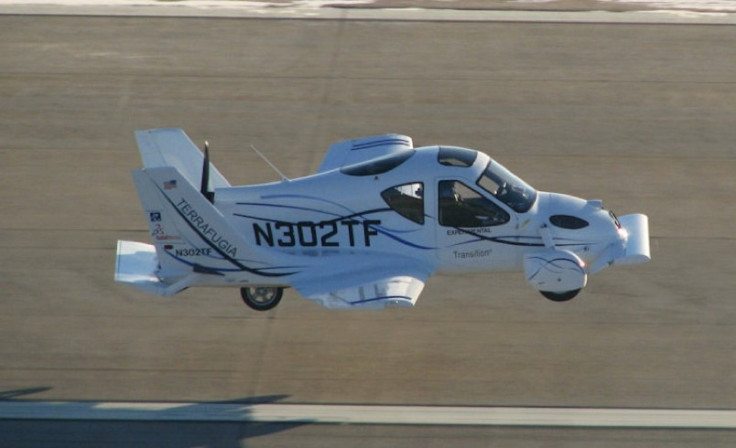Flying cars set to hit market by 2012

Many have a dream of owning a flying car, but it could finally become a reality within the next year.
U.S. company Terrafugia will start manufacturing flying cars called the Transition Roadable Light Sport Aircraft, which can be transformed from a car to a plane in just 30 seconds.
The Transition can fly at 115 mph and reach 65 mph on the road. On the ground, with its wings tucked up and in, it can fill up with petrol at a normal filling station and fits in an average size garage, according to report in the Sunday Express. It is set to go into production this year and is expected to cost between £125,000 and £160,000 excluding the shipping costs.
Richard Gersh, of Terrafugia, the US company which makes the vehicle and hopes to sell 200 a year, said: This is an aeroplane first and foremost. The idea is you can drive it to and from a regulation airport. Fully fueled, you can fly it for a range of 400 to 450 miles.
We have 100 orders so far. There are still some minor changes that need to be made because it has to meet both road and aviation standards
In order to own the vehicle, you must first have a pilots license and certificate from the Civil Aviation Authority and the European Aviation Safety Agency.
A lot of people said they never thought it would fly. But we have a vehicle right here, right now that drives and flies, and converts between the two in 20 seconds, says Terrafugia CEO Carl Dietrich.
Last month Terrafugia received a $960,000 round of funding from a private equity investor.
At the same time the U.S. government is also pursuing the idea of a flying car. The Pentagon's Defense Advanced Research Projects Agency awarded a 17-month, $988,000 contract to Carnegie Mellon's Robotics Institute to develop an autonomous flight system for the Transformer (TX) Program.
The TX program aims to develop a robust ground vehicle that can transform into an air vehicle with vertical take-off and landing capability, while offering significant operational flexibility with the ability to travel 250 nautical miles on land and in the air, or a combination, while carrying up to 1,000 pounds.
The Pentagon's DARPA has selected six vendors. AAI Corporation and Lockheed Martin Company are the prime system integrators. Carnegie Mellon University and Pratt & Whitney Rocketdyne are developers of critical enabling technology. Aurora Flight Sciences partnered with ThinGap, and Metis Design Corp, two Small Business Innovation Research (SBIR) recipients to participate in this 12-month effort.
© Copyright IBTimes 2025. All rights reserved.





















